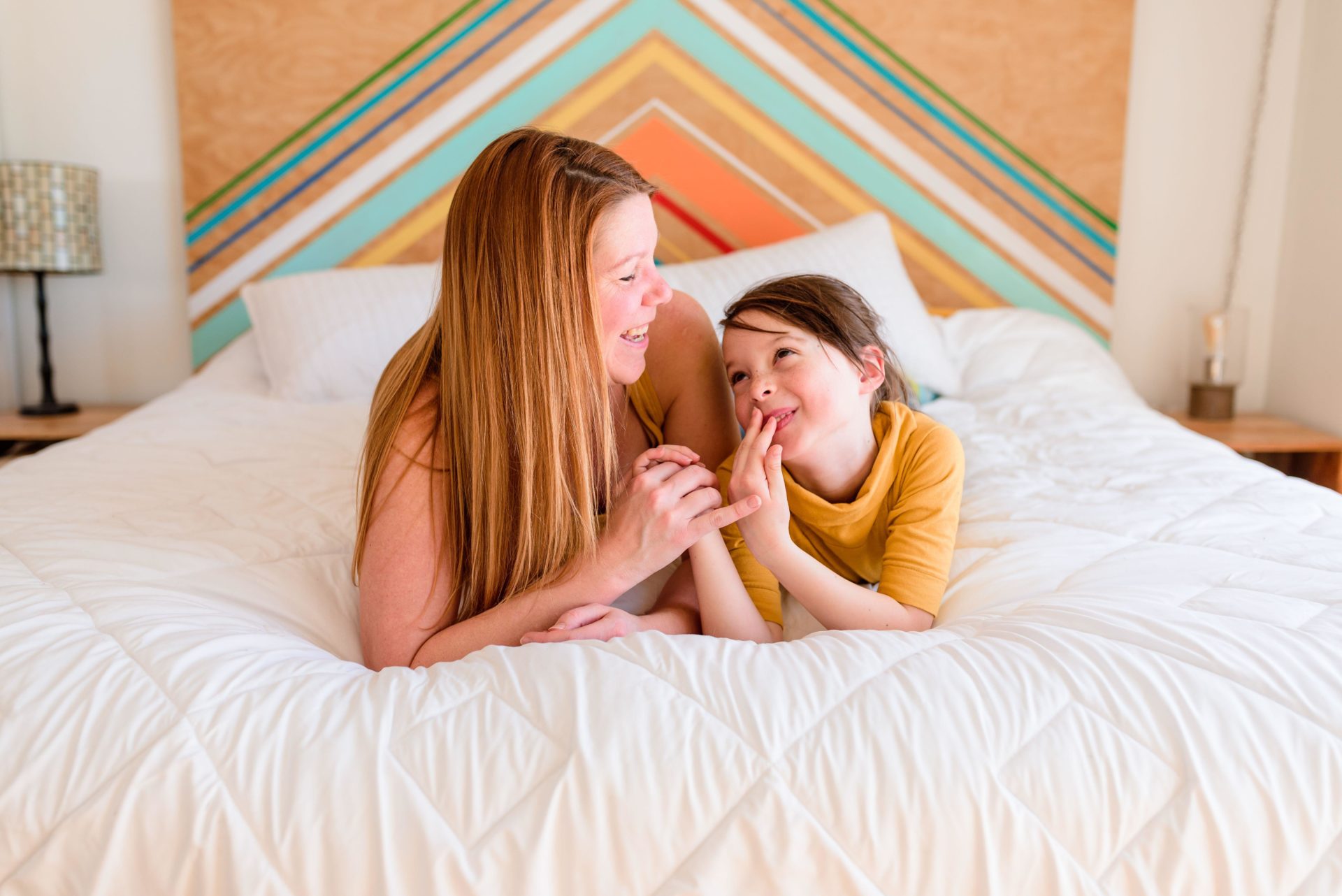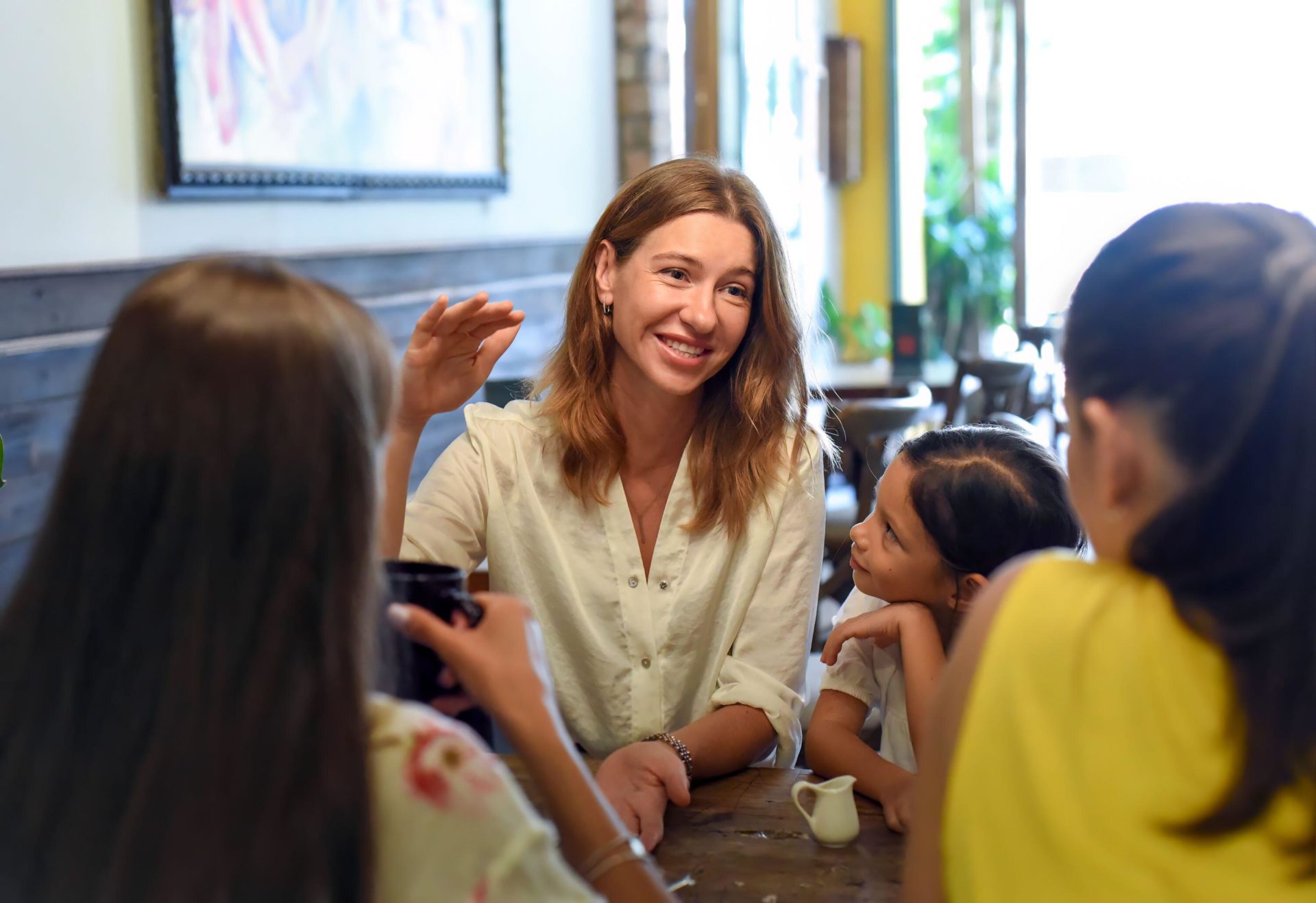On this week’s ‘Parenting’ segment, one mother asked if she should be concerned that her daughter prefers adult company over children her own age.
“I’m the parent of a fantastic, lively nine-year-old who is an only child,” she told Moncrieff.
“I think she’s well adjusted and a really bright student, but I am concerned that she gets on better with adults than her classmates.”
Her daughter is noticeably quieter coming home from school this year and is also spending more time alone on her tablet watching YouTube, her mother said.
The family live on a busy road where the girl has many friends, and she is involved in extracurriculars with kids her own age.
“One of the other mothers actually made a comment to me about how mature my daughter was – but it wasn’t in a particularly complimentary way,” the mother said.
“My daughter loves chatting to me and my friends when they come over and to be honest, I value her opinion on a lot of things, so maybe it’s my fault.
“I think she’s independent and maybe a little grown up - but is that really a problem?”
 Portrait of a mother and daughter lying on a bed talking. Image: RooM the Agency / Alamy. 2 March 2019
Portrait of a mother and daughter lying on a bed talking. Image: RooM the Agency / Alamy. 2 March 2019Family psychotherapist Joanna Fortune said that while this girl’s behaviour is definitely more in line with that of an older child, it is still important not to “prematurely adultify” a child.
“There’s a little bit of her acting way more grown up than she is and maybe having those kind of blurred boundaries between adults and children,” Joanna said.
“That’s something to be aware of because it can result in that kind of pseudo-maturity, which isn’t authentic; it’s when a child is almost role playing being grown up.
“The only way to actually become a grown up is to go through the stages of childhood - and to do those sequentially, ideally.
“It is much more important at this stage – and even going forward – that she develop connections with her peers rather than she become one of mum’s peers.”
Boundaries
Joanna said that while talking to children about life events and serious topics is perfectly fine, asking them for advice confuses the boundaries of the relationship.
“It’s confusing them about what their role is in relation to us,” she said.
“Just keeping those boundaries around that parent-child relationship – I'm really thinking of future-proofing the relationship.
“It might be working now at nine, but you don’t want that as she gets a bit older.
“Also, as adults and as parents, we deserve time and space with our friends for ourselves where we don’t have children with us.
“Just be really careful about protecting those relationships and that space for yourself as an adult as well.”
 Female best friends talking and eating in a cafe. Image: Tatiana Terekhina / Alamy. 12 July 2023
Female best friends talking and eating in a cafe. Image: Tatiana Terekhina / Alamy. 12 July 2023According to Joanna, it is also worth checking in with the girl’s teacher to see if this behaviour is originating from school.
“I would think, is there more of that gap opening up between her and her peer group in school?” she said.
“Whenever there’s a sudden change like that it’s always worth approaching the teacher with curiosity and saying, ‘Look, I’ve noticed this at the end of the day, are you noticing anything in school?’
“When a child’s behaviour changes without any context... then of course you approach that and go, ‘What else could be going on?’
“But I would think you’ve got to drive that connection with her peers because she’s more likely to go out and play with friends if she feels connected with them.”
Joanna said that for children, feeling they don’t have much in common with kids their own age can be “really difficult”.
Listen back here:
Main image: Child in suit pointing up and frowning displeased, standing over white background. Image: Mykola Kravchenko / Alamy. 25 September 2021









